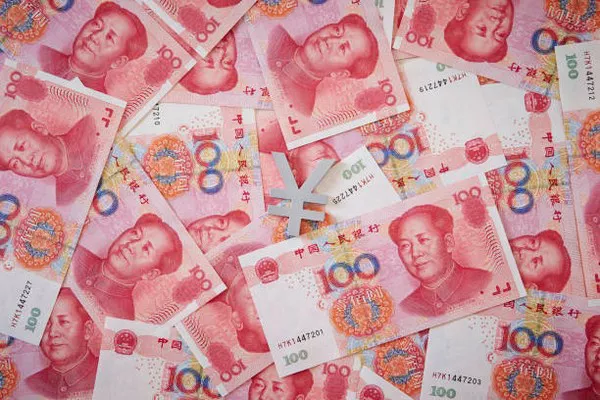The Chinese yuan, also known as the renminbi (RMB), has been a subject of global economic discussions due to its seemingly undervalued status. As the world’s second-largest economy, China plays a significant role in international trade and finance. The perceived cheapness of the yuan has raised questions about China’s currency policies and their implications for the global economic landscape. In this article, we will delve into the factors contributing to the depreciation of the yuan and explore the consequences for both China and the international community.
Historical Context
To understand the current state of the yuan, it’s essential to consider the historical context. For decades, China maintained a fixed exchange rate system, pegging the yuan to the U.S. dollar. However, in 2005, the Chinese government decided to adopt a more flexible exchange rate policy, allowing the yuan to appreciate gradually. This move was aimed at addressing concerns from the international community, particularly the United States, about an undervalued yuan giving Chinese exports an unfair advantage.
Despite this shift towards a more flexible exchange rate, the yuan has faced continuous depreciation in recent years. This has sparked debates about the reasons behind its apparent cheapness.
Trade Imbalances
One primary factor contributing to the depreciation of the yuan is China’s persistent trade surpluses. The country consistently exports more than it imports, resulting in a surplus of foreign currency reserves. To maintain a competitive edge in global markets, China has been accused of intentionally keeping the yuan undervalued, making its exports cheaper and imports more expensive.
By maintaining a lower exchange rate, China encourages higher demand for its exports, helping sustain its economic growth. However, this strategy has consequences for other trading partners, leading to imbalances and tensions in global trade relations.
Currency Manipulation
Accusations of currency manipulation have been levied against China, as some argue that the government intervenes in the foreign exchange market to keep the yuan artificially low. The People’s Bank of China (PBOC) has been known to buy foreign currencies and sell yuan to influence its value. While the Chinese government denies manipulating its currency for competitive advantage, critics argue that such interventions contribute to the yuan’s perceived cheapness.
Domestic Economic Policies
China’s domestic economic policies also play a role in the depreciation of the yuan. In an effort to boost economic growth, the Chinese government implements policies that may indirectly impact the exchange rate. For instance, measures such as interest rate adjustments and fiscal stimulus can influence investor confidence and capital flows, affecting the value of the yuan.
Moreover, concerns about China’s economic slowdown and financial stability can lead to capital outflows, putting downward pressure on the currency. To counteract these trends, the government may intervene in the foreign exchange market or implement capital controls to stabilize the yuan.
Global Economic Conditions
External factors, such as global economic conditions, also contribute to the yuan’s depreciation. Economic uncertainties and downturns in major economies can lead to capital flight from emerging markets, including China. Investors may seek safe-haven assets, resulting in a depreciation of the yuan against other major currencies.
Furthermore, trade tensions between China and its major trading partners, particularly the United States, have added volatility to the yuan’s value. Tariffs and trade restrictions can impact investor confidence, leading to fluctuations in the currency’s exchange rate.
The Impact on China and the Global Economy
The depreciation of the yuan has both advantages and disadvantages for China and the global economy. On the positive side, a cheaper yuan makes Chinese exports more competitive in international markets, supporting the country’s economic growth. However, it also poses challenges, such as rising inflation due to increased import costs.
For the global economy, a depreciating yuan can lead to trade imbalances and tensions, especially with major trading partners. Some argue that a chronically undervalued yuan contributes to a distortion in global trade, disadvantaging other economies and hindering a fair and level playing field.
See Also Is The Yuan Replace The Dollar?
Conclusion
The reasons behind the yuan’s apparent cheapness are multifaceted, stemming from a combination of trade imbalances, currency manipulation accusations, domestic economic policies, and global economic conditions. China’s role as a key player in the global economy magnifies the impact of its currency policies on international trade and finance.
Addressing the issue requires a collaborative effort from the international community, encouraging China to adopt transparent and market-driven exchange rate mechanisms. By fostering a more balanced and equitable global economic environment, the concerns surrounding the yuan’s depreciation can be mitigated, promoting sustainable economic growth for all stakeholders.


